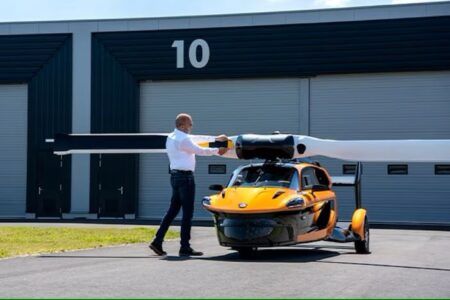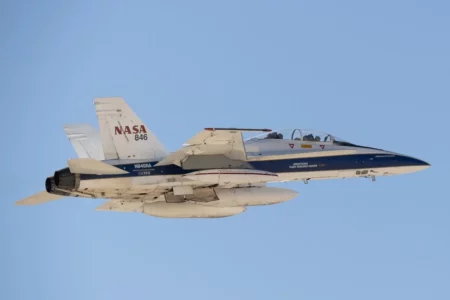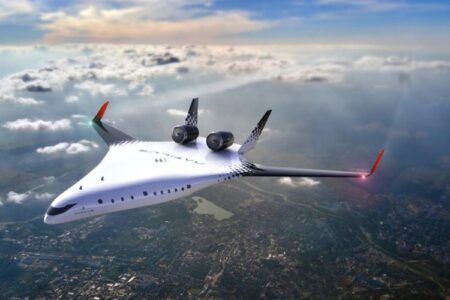The world’s first four-seat passenger aircraft powered solely by a hydrogen fuel cell system, the HY4, successfully made its first official flight, from Stuttgart Airport, Germany, on September 29, 2016. Researchers from the German Aerospace Center (Deutsches Zentrum für Luft- und Raumfahrt / DLR) developed the aircraft’s powertrain and worked on the project with industry and research partners.
The HY4 fuel cell aircraft was developed by the DLR’s Institute of Engineering Thermodynamics together with partners Hydrogenics, Pipistrel, H2FLY, Ulm University and Stuttgart Airport.
DLR researchers were responsible for developing the hydrogen fuel cell power train and installing it in the aircraft. The power train consists of a hydrogen storage system, a low-temperature hydrogen fuel cell, and a battery. The fuel cell converts hydrogen directly into electrical energy. The only waste product from this process is water. An electric motor uses the power thus generated to propel the aircraft. A high-performance lithium battery covers peak power loads during take-off and when climbing. If the hydrogen required for the fuel cell is generated via electrolysis using power from renewable energy sources, the HY4 can fly without generating any emissions at all. The aircraft is operated by the DLR spin-off, H2FLY.
The HY4 has a motor output of 80kW, a maximum speed of approximately 200km/h and a cruising speed of 145km/h. Depending on speed, altitude and load, it can achieve a range of between 750km and 1,500km. The most striking feature of the HY4 is its twin fuselages, each with space for two passengers. The maximum weight of the aircraft is 1500kg.
“With the HY4, we now have an optimal platform to continue developing the use of fuel cells on aircraft,” said Josef Kallo, responsible for the HY4 project at DLR and a professor at the Ulm University. “Small passenger aircraft, such as the HY4, could soon be used in regional transport as electric air taxis, and offer a flexible and rapid alternative to existing means of transport.”
“I am proud that European researchers and manufacturers are launching this hydrogen fuel cell-powered aircraft,” added Violeta Bulc, EU transport commissioner on Zero Emission Flying.
“Such forward looking activities embody the future of zero-emission flying. The Commission firmly supports such initiatives, which are fully in line with our new strategy for low-emission mobility. Aviation plays an important role in bringing people together, and in connecting large cities as well as remote locations. It also ensures businesses can grow and develop. The EU will continue to support such initiatives, to drive innovation forward.”
Watch the HY4 make its first flight, here.
October 7, 2016




